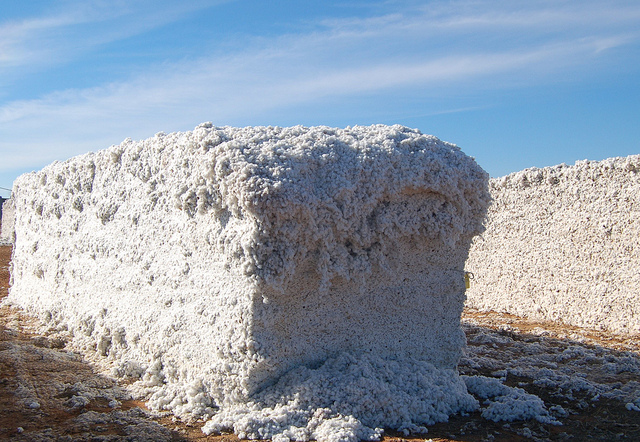The Texas Legislature passed a new bill, the Producer Protection Act, effective September 1, that changes rules for purchase contracts for agricultural products. The bill was sponsored by Representative Dustin Burrows and Senator Charles Perry. It was signed by Governor Abbott on June 15, 2017 and takes effect September 1, 2017.
Essentially, the new legislation does two things. First, it requires a contract to state whether it is an acreage or quantity contract. Second, it imposes limitations on lawsuits filed against producers using acreage contracts. [Read full bill here.]

Agricultural Products
Although the discussion around this bill centered on cotton, it applies to all agricultural products, so all producers and purchasers in Texas need to be aware of the law and the changes it makes. The new bill does not define the term “agricultural product,” but the Agricultural Code does define this term in another section as follows, “an agricultural, horticultural, viticultural, or vegetable product, bees, honey, fish, or other seafood, planting seed, livestock, a livestock product, a forestry product, poultry, or a poultry product, either in its natural or processed state that has been produced, processed, or otherwise had value added to it in this state.
Quantity or Acreage Contract
Initially, the new law sets forth definitions of an acreage contract and quantity contract. An “acreage contract” is one that requires a producer to deliver to the purchaser all production of a specified agricultural product grown on land described in the contract. On the other hand, a “quantity contract” is one that requires a producer to deliver a specified quantity of an agricultural product, regardless of the amount of product grown by the producer.
For example, if cotton farmer were to agree to sell all of the cotton produced on a certain 160 irrigated acres to Purchaser X, this would be an acreage contract. If a contract provided that a cotton farmer would sell 275 bales to Purchaser X, that would be a quantity contract.
Under the new law, a contract between a producer and purchaser of an agricultural product must “clearly and conspicuously state on its face” whether it is an acreage contract or a quantity contract. The statute does not list specific requirements such as font size or location of the language, but under Texas contract law, “conspicuous” requires that a reasonable person ought to have noticed it. Oftentimes, this is achieved by using bold or large font sizes on the front page of a document.
Limitation on Lawsuits
Additionally, the law provides that a purchaser may not sue a producer under an acreage contract unless the producer “knowingly fails to deliver” all of the product grown on specified land as required by contract. Although this specific statutory section does not define the term “knowingly,” the Texas Penal Code Section 6.03 states that a person acts knowingly if he is aware of the nature of his conduct or that the circumstances exist or he is aware that his conduct is reasonably certain to cause the result. By requiring that a producer “knowingly” not deliver all product seems to protect a producer who may have negligently or inadvertently failed to do so.
There has been some chatter amongst agricultural groups that this provision might cause purchasers to shy away from utilizing acreage contracts, preferring instead to use a production contract for which there is no limitation on being able to file suit for breach. However, industry groups predict that there are enough competing purchasers that if one decides not to offer an acreage contract, another will continue to do so and producers will likely not be impacted.
Conclusion
On the most practical level, purchasers and producers entering into ag product purchase contracts after September 1 should review their contract (particularly if using prior forms) to ensure that the agreement conspicuously states whether it is an acreage or quantity contract.
Additionally, this bill offers a good opportunity to remind people to always read every contract and understand it before signing. A producer must know and understand the difference between acreage and quantity contracts and know which he or she is signing. Further, a person should never rely upon oral representations made regarding the meaning or contents of a written contract. Those oral promises are not part of the agreement and likely will not be enforceable.
Finally, both producers and purchasers should understand the limitation on filing suit against a producer for an acreage contract. For purchasers, this means that they likely cannot file a lawsuit against a producer who negligently fails to deliver all production under an acreage contract. For a producer, it is important to understand that if he or she knowingly fails to deliver all production as required, litigation is still a possibility under the law.












